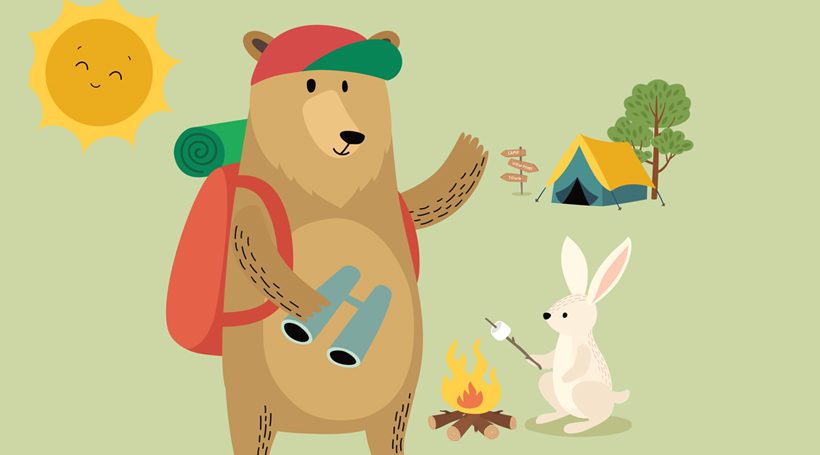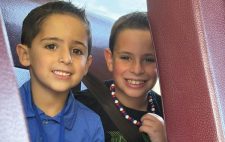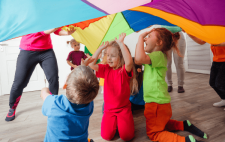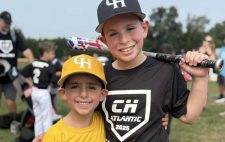When Haddonfield fifth-grader Talia Seshasai gets down about all the ways the pandemic has put a damper on so many things she loves to do – sports, birthday parties and even school – she daydreams about sunnier days ahead.
Her mind wanders to jumping on lake inflatables, conquering the rock climbing wall and zip-lining through the trees at her happy place – summer camp.
It will be Talia’s 5th summer there, but her first in the senior camp, where she can finally choose all her own activities and tackle the high ropes course. In the camp world, that’s a huge deal, but it’s even bigger in her mind since she and her friends had carefully planned out their schedules together last spring for a season that never happened.
“When camp was canceled last year, I understood why, but I was really disappointed,” says Talia, 11. “It was sad that I didn’t get to do the things I had been looking forward to all year. But this summer, I’m really excited to have time to just have fun again.”
After a year of social distancing, it might seem like a leap to send kids off to a new setting surrounded by hundreds of people. But a growing body of research shows that camps can pull off both safety and fun, and the JCC Camps are determined to do just that, says Sara Sideman, director of the JCC Camps at Medford.
“Camp is going to look different but feel the same,” Sideman says. “Kids are still going to meet new friends, grow emotionally, explore new interests and achieve new goals.”
Behind the scenes, staff will be working to make sure that a bit of dust is all they’re bringing home at the end of the day.
“We were experts in quarantine and germ control. We ramped that up on a large scale to keep our campers safe.”
“There’s a difference between germs and dirt,” she says. “Our campus is in the middle of the Pinelands – there’s no question that our campers are still going to come home dirty. My son is a camper in the first grade, and the dirtier he comes home, the better the day he’s had. We’re just going to make sure no one is taking a virus home to their families.”
To keep exposure low, large groups of campers won’t be able to mingle. Campers will gather for meals outside in a pavilion as opposed to eating in the dining hall. You’ll also see more outdoor sinks around the grounds so everyone can wash hands frequently, Sideman says. In addition, all equipment and facilities will be subject to professional cleanings every night and between activities.
It may take an extra minute or 2 to sanitize the life jackets between canoe trips, but some added precaution isn’t going to keep them off the lake. Because after the year we’ve had, kids need time to just let loose and have fun, says Sideman.
“When we decided to close camp, there were a lot of tears – especially mine,” she says. “2020 would have been our 78th summer, so camp is ingrained in our community. It was heartbreaking for so many people, and it’s going to make this year even more special now that we’re back.”
But not every summer camp has to rewire drastically for the pandemic era. Liberty Lake Day Camp already has that down. As one of the few summer camps across the country that had a successful 2020 season, the Bordentown-based camp proved it could safely operate without sacrificing fun.
“I was never convinced that we couldn’t have camp safely,” says Director Andy Pritikin, a former president of the American Camp Association of New York and New Jersey. “I looked around and thought, ‘We have 60 acres of fresh air.’ There was no reason we couldn’t do it.”
He took his lead from the daycare centers that had opened safely in New Jersey. Campers were separated into groups, which served as family units or pods. If one member was exposed to the virus, everyone would quarantine for 2 weeks, Pritikin says. Campers and staff were screened and temperature-checked daily. In addition, he provided more hand-washing stations and added steps to the disinfection protocols.
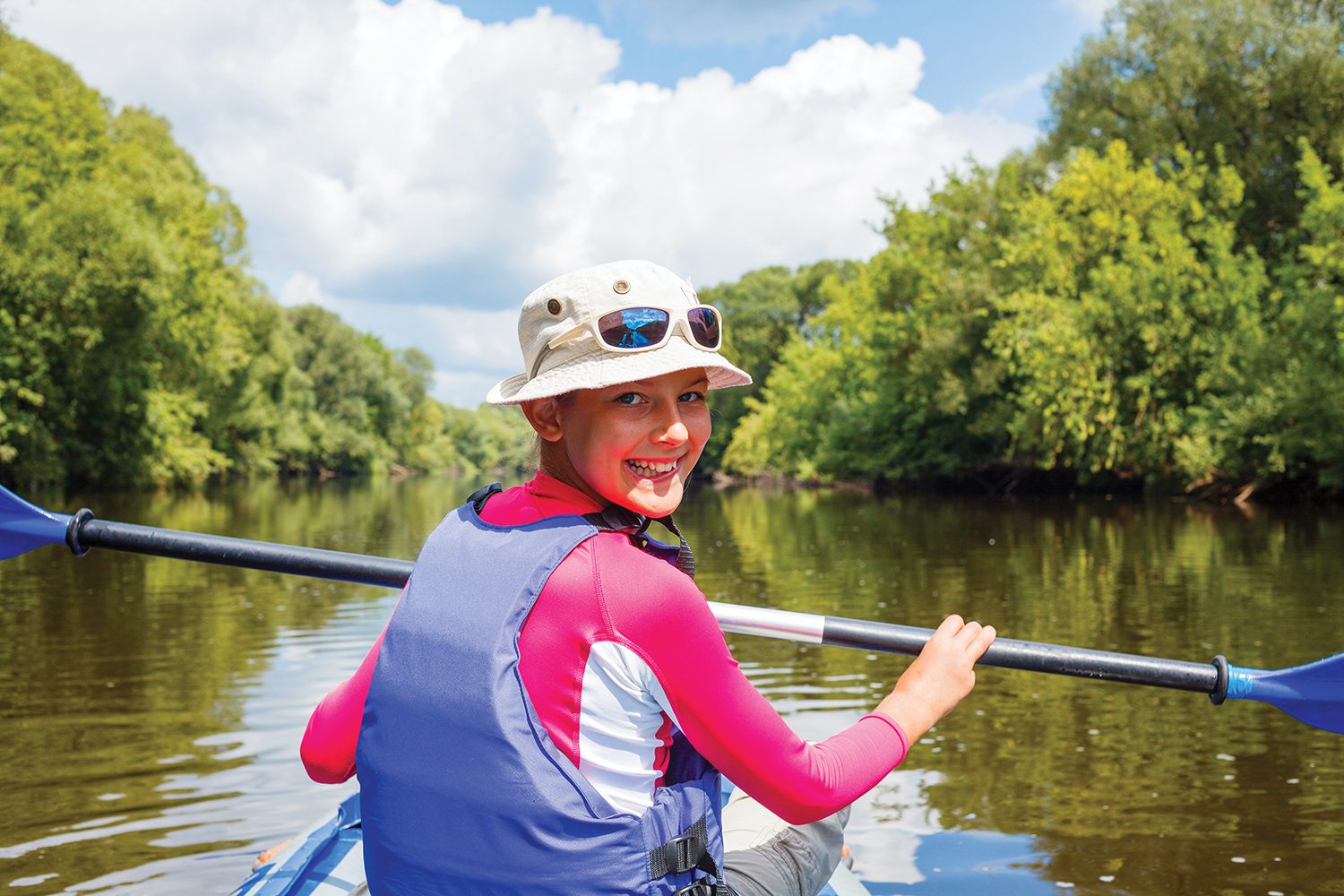
Making all these changes was not a huge leap for the camp and him personally, he says, noting his son Justin battled cancer for 7 years. (He is currently in remission.)
“We were experts in quarantine and germ control,” says Pritikin. “We ramped that up on a large scale to keep our campers safe.”
There was only 1 asymptomatic case of Covid at Liberty Lake the entire 2020 season, he says. He attributes success largely to camp families, who respected the new Covid-related rules. Many chose to quarantine outside of camp to protect other campers, and many kept their kids home at the slightest cough. “No one wanted their kid to be patient zero in a camp-wide outbreak,” says Pritikin.
Liberty Lake families bought into the mindset that camp was so important it needed to be open, he says.
“After being stuck in your home for 3, 4 months, camp became a beacon of hope for so many families,” says Pritikin, noting that more than 1,000 kids showed up, with more than 400 coming from other camps that had closed. Staff felt it too – of the 210 team members invited back from the past summer, the vast majority returned.
But as a result of stricter health guidelines, camp did have to change. Pritikin cut activities down to the basics – no more musicals, no more electives, just old-school summer camp.
“For so long, there’s been this chaos of adding all the bells and whistles and new programs every year to impress parents,” says Pritikin. “But last year, we went back to basics, and kids loved it. We could have spent the entire day playing Dominos and they’d love it. They were happy to just be at camp with their friends.”
So when parents ask him what is going to change for summer of 2021, he says nothing – they’ll still operate under the strict health and safety precautions that were imposed in 2020, but there will also be just as much fun, he says.
The same goes for the JCC Camps at Medford.
“Everything we went through last summer is only going to enhance the importance of summer camp in kids’ lives, because we have a newfound understanding of how much camp means to us,” says Sideman. “This summer, I think it will feel like coming back home.”


